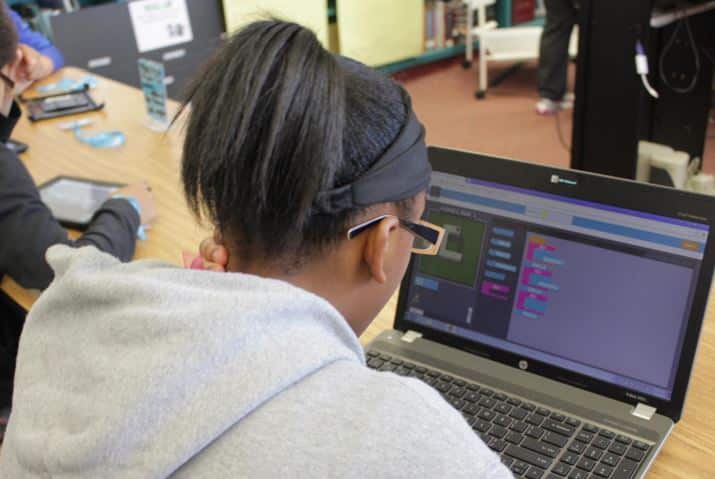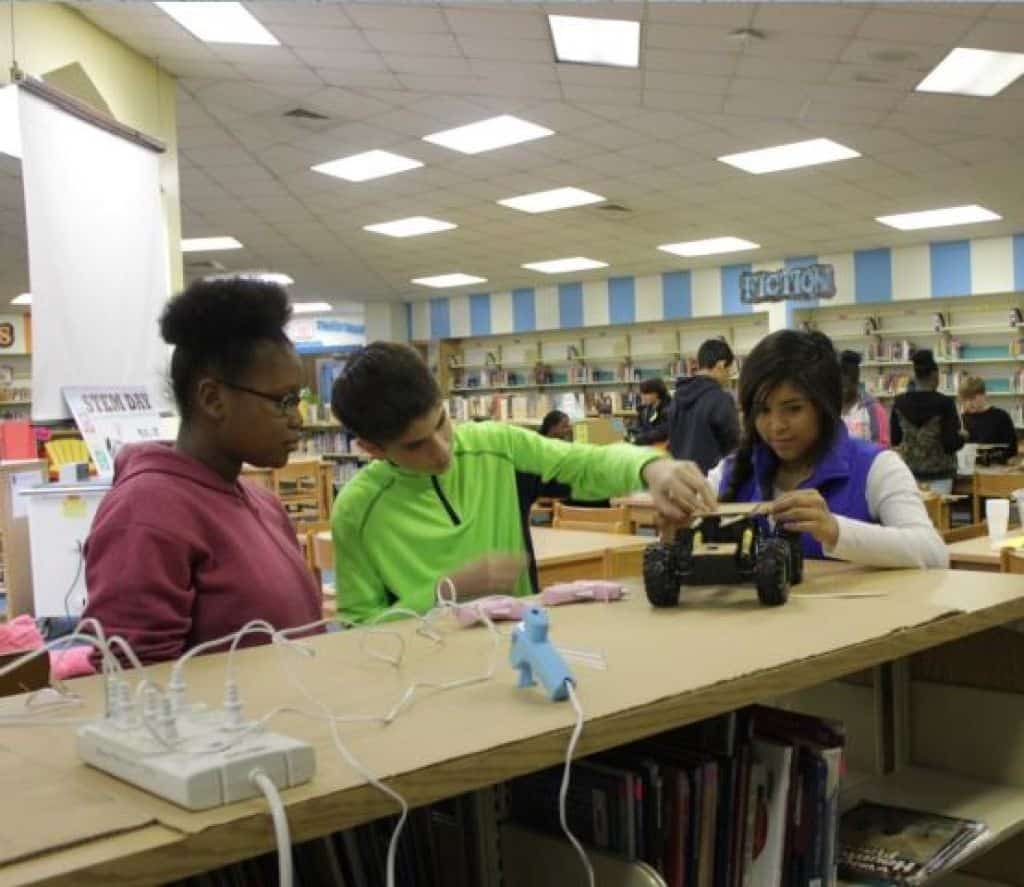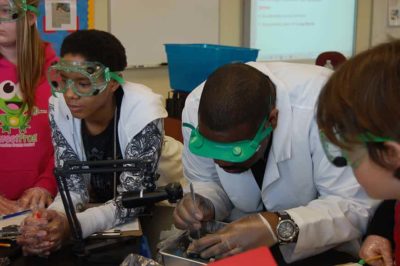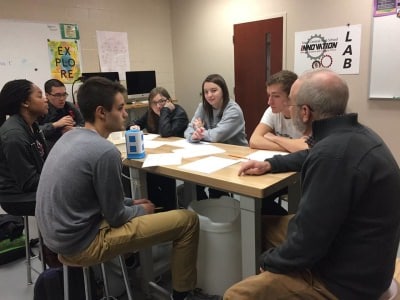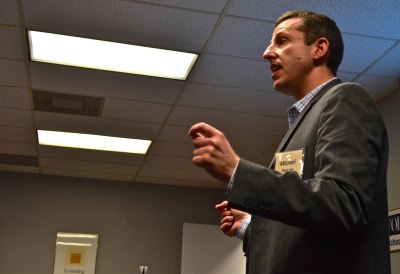VOICES FROM THE 31ST ANNUAL EMERGING ISSUES FORUM
Preparing North Carolina’s students for the future of work will require closer relationships between businesses and educators.
Nearly three years ago, Wilson County Schools embarked on a journey to design a new program to engage students while addressing a pressing need in the local workforce. Wilson is fortunate to have a variety of progressive manufacturing sites that employ workers from across the state. At any given time, manufacturers in Wilson are seeking to fill over 500 vacancies despite a persistent unemployment rate exceeding nine percent.
With help from the community’s economic development office, school system leaders began by touring worksites and speaking with plant managers about their present and future needs. The plan that emerged was to design an early college high school focused on advanced manufacturing with the even more specific task of training students to become maintenance technicians. Manufacturers identified maintenance technicians as among the hardest positions to fill across the manufacturing sector. In short, while automation continues replacing workers in manufacturing, demand for people with the skills to keep the highly technical production equipment in working order continues to grow.
This coming fall, the Wilson Academy of Applied Technology (WAAT) will open with a freshman class of 75 students who will attend the school for five years and graduate with a high school diploma and an Associate of Applied Science degree in Applied Engineering Technology.
The establishment of the Manufacturing Advisory Board, consisting of representatives from 16 local manufacturing sites, became the most critical element of WAAT’s development. Manufacturing Advisory Board members’ input ensured students’ experiences in the school would be relevant and current. The advisory board, along with representatives from Wilson Community College, Wilson County Schools, and Wilson Economic Development designed the five-year program of study. The expertise of the advisory board helped the planners identify skills and behaviors students will need to succeed in a professional manufacturing environment.
Advisory board members reported that currently a two-year training period is necessary to ensure new hires understand the need for soft skills and basic manufacturing processes. Thanks to the wisdom of the advisory board, students graduating from WAAT will not only obtain soft skills, but will leave with an understanding of standards like 5S, the DMAIC process, Occupational Safety and Health Administration (OSHA) requirements, and Good Manufacturing Practices (GMP).
Learning the principles of how to troubleshoot and repair automated equipment will be taught in conjunction with Wilson Community College using donated automated equipment from the Manufacturing Advisory Board. In addition, the advisory board members will contribute to WAAT’s success by supplying opportunities for field trips to their manufacturing sites, classroom speakers, donations of equipment and other resources such as technical manuals, internships and job shadowing placements, and cash. They will also remain in place after the school opens to ensure ongoing support and quality control.
Funding for the program began with a $750,000 grant from the Golden Leaf Foundation with additional funds coming from the county government, private donors, and most recently a $350,000 grant from North Carolina’s Education and Workforce Innovation Fund. Local manufacturers have donated close to $400,000 worth of equipment and the majority of the private funds have come from them as well. These funds will be used to construct manufacturing labs and provide innovative technologies for the students.
Principal Krystal Cox began recruiting students to join the inaugural class of the Wilson Academy of Applied Technology earlier this year.
She conducted STEM Days at each of Wilson’s six middle schools to introduce students to careers available in manufacturing, and engage them in fun activities related to programming and the DMAIC (Define, Measure, Analyze, Improve, and Control) process. She recognizes that shifting students’ and families’ mindsets about careers in manufacturing will be essential for the success of the program.
The possibility of leaving WAAT with a two-year degree, no college debt, and an opportunity for a high-paying position with room for career growth will convince many to give the program a chance. As automation continues to eliminate traditional jobs across the state, students who graduate from WAAT in 2021 with the skills to keep automation equipment working, will find an abundance of job opportunities.
Like other North Carolina communities, Wilson has more work to do to prepare students for the future of work, but programs like WAAT can help lead the way.
